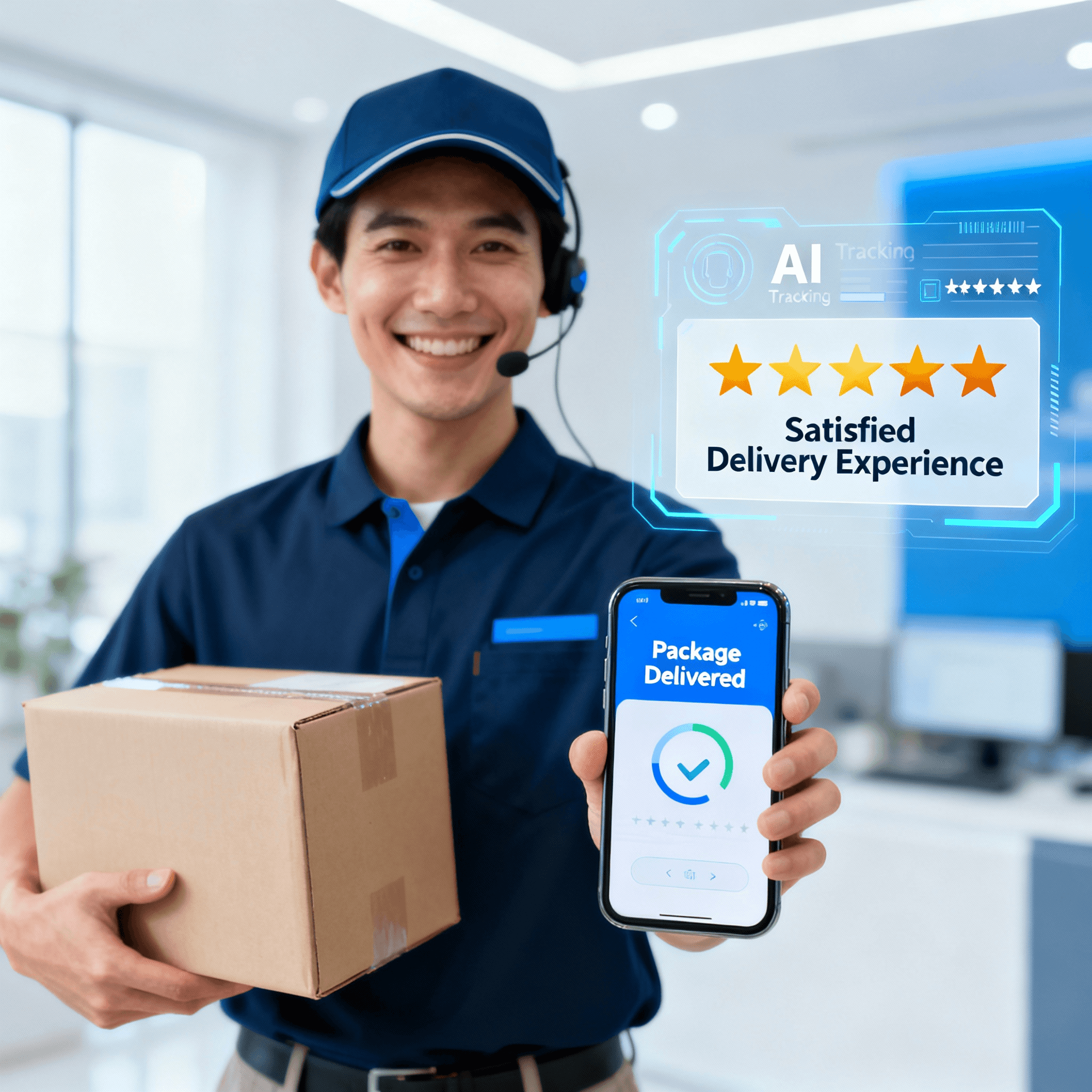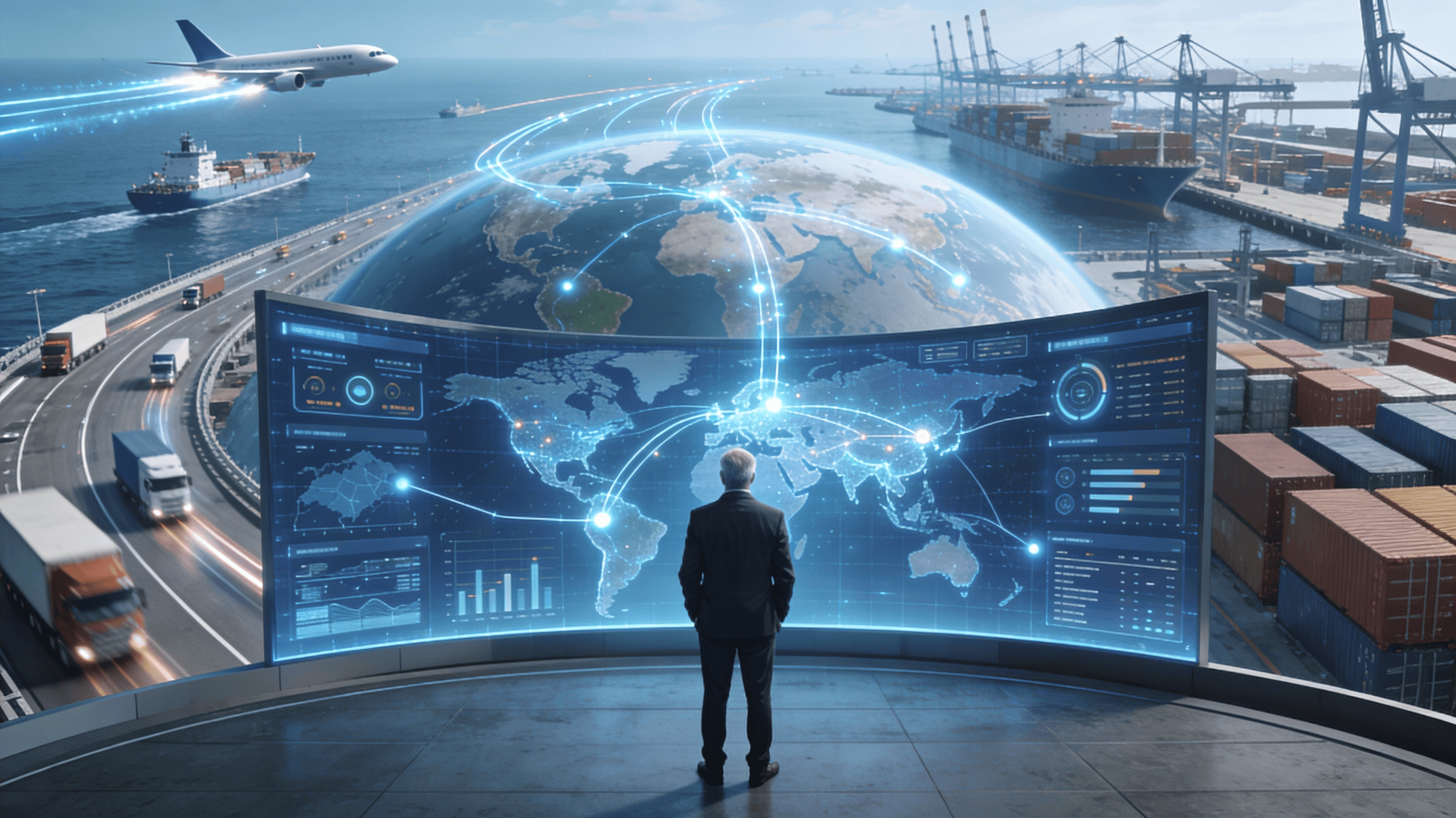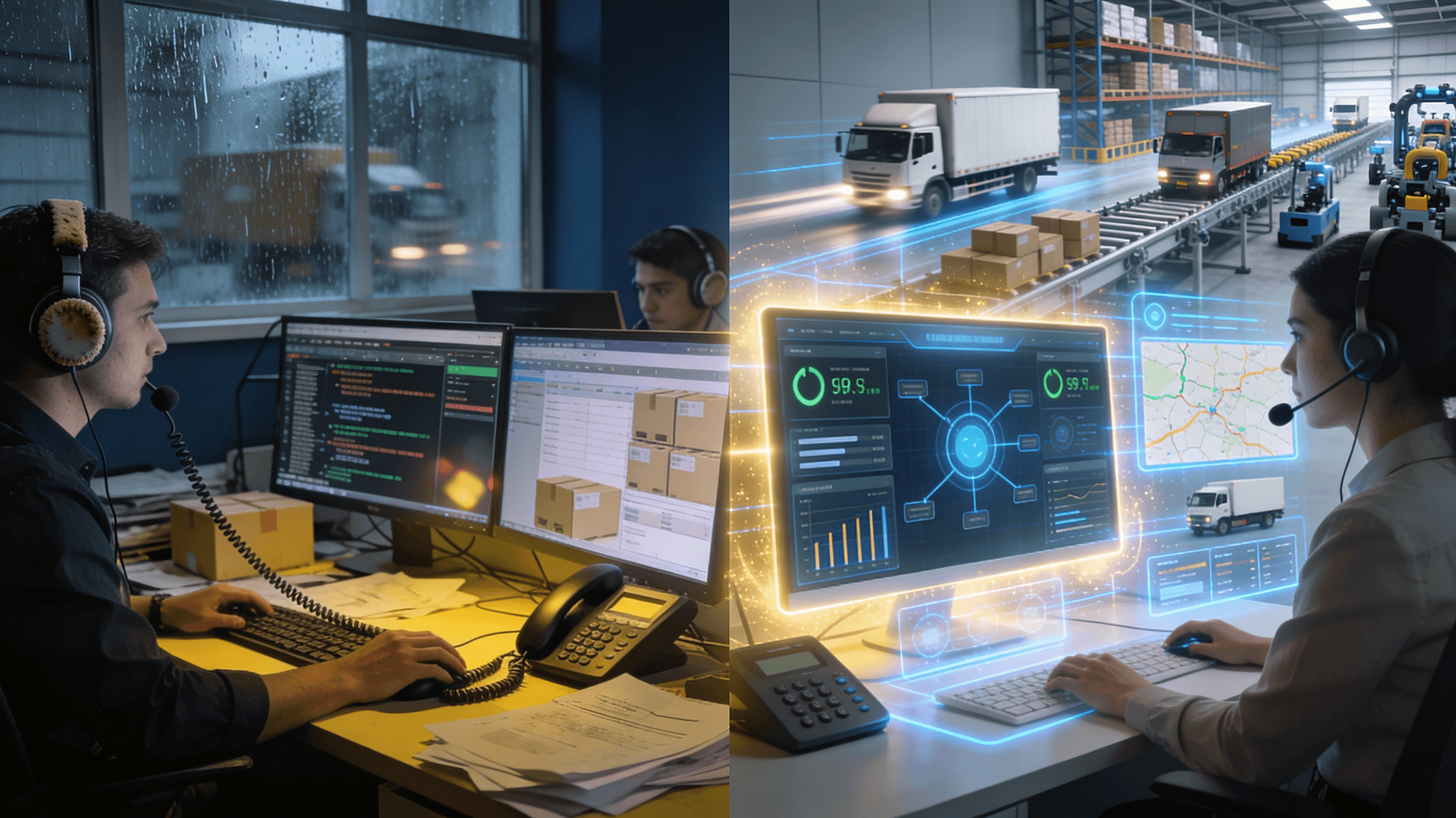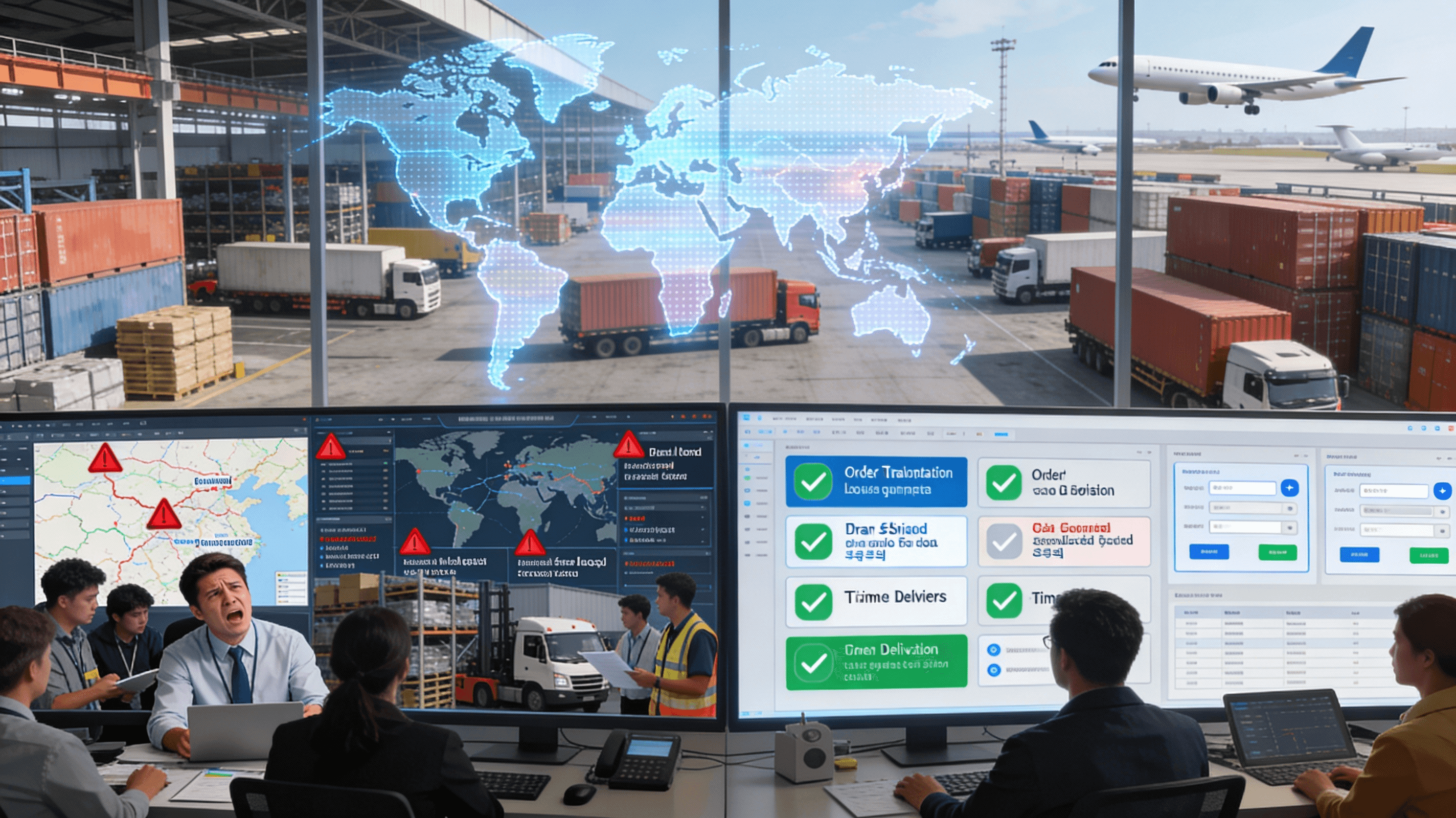How Does the Use of AI Impact Customer Satisfaction and Delivery Experience?
Friday, 3 Oct 2025
|
In the fast-paced world of logistics, customer satisfaction is paramount. CEOs, CXOs, and COOs across the logistics industry know that a seamless delivery experience is the key to building customer loyalty. As technology continues to evolve, Artificial Intelligence (AI) is becoming a critical driver of this experience, ensuring faster, more accurate deliveries while improving customer communication.
So, how exactly does AI impact customer satisfaction and the overall delivery experience? Let’s explore how AI is revolutionizing logistics by optimizing operations, reducing errors, and providing customers with a personalized and seamless service.
1. Faster and More Accurate Deliveries
AI algorithms are transforming the way logistics companies handle deliveries. By using real-time data and predictive analytics, AI systems optimize delivery routes and schedules, ensuring faster and more reliable deliveries. These AI-powered systems can predict traffic patterns, monitor weather conditions, and account for any potential disruptions, ensuring that goods reach customers faster, with fewer delays.
In addition, AI's ability to forecast demand enables logistics companies to better allocate resources and streamline operations. For example, AI tools can predict the best time to ship products, ensuring that deliveries happen during the optimal time window, reducing delays and improving delivery accuracy.
Real-World Example: Companies like Amazon are leveraging AI-driven route optimization systems to enhance their delivery efficiency, reducing delivery times and increasing customer satisfaction.
2. Real-Time Tracking and Updates
One of the most significant improvements AI brings to customer satisfaction is real-time tracking. Gone are the days when customers were left in the dark about their package’s whereabouts. AI systems enable logistics companies to provide customers with up-to-the-minute tracking information, giving them complete visibility throughout the delivery process.
AI systems continuously monitor the location of shipments and automatically send updates to customers via their preferred communication channels, such as email, SMS, or app notifications. These real-time updates enhance the customer experience by reducing anxiety around delivery times and keeping customers informed at every step.
Real-World Example: FedEx uses AI to provide real-time delivery updates, allowing customers to track their shipments accurately and receive instant notifications on delays or changes.
3. Personalization of Customer Interactions
AI-powered chatbots and virtual assistants are changing the way logistics companies interact with their customers. These AI agents can handle customer inquiries, resolve issues, and provide detailed answers to complex logistics questions—all in real time. By offering personalized responses, AI tools help improve the customer experience, making it more interactive and less frustrating.
Furthermore, AI systems can personalize communication based on customer preferences. For example, AI can track customer behavior and suggest delivery options that align with their previous interactions or specific needs, enhancing the overall service.
Real-World Example: DHL has integrated AI-powered virtual assistants into their customer service channels, enabling personalized responses and improving the speed of resolution for customer inquiries.
4. Reducing Human Error in Deliveries
Human errors are inevitable in logistics, but AI can help reduce these mistakes significantly. From order picking to shipping labels, AI-driven automation ensures that tasks are completed accurately and on time. This results in fewer issues related to incorrect shipments, wrong addresses, or delayed deliveries, all of which can negatively impact customer satisfaction.
AI’s ability to optimize inventory management and automate order fulfillment also reduces the chances of overstocking or understocking, which can lead to missed deliveries or backorders. By minimizing errors, AI helps logistics companies build trust with their customers, ensuring a smooth and reliable delivery process.
Real-World Example: UPS uses AI to streamline its delivery processes and reduce errors, resulting in higher accuracy rates for package deliveries.
5. Predictive Customer Support
AI not only improves logistics operations but also enhances customer service. By analyzing past data and tracking delivery performance, AI systems can predict potential customer issues before they arise. For instance, AI can identify when a delivery might be delayed or if there’s a problem with a customer’s order, allowing customer service teams to intervene and resolve the issue proactively.
This predictive capability enables logistics companies to reach out to customers with solutions before they even have a chance to complain, resulting in a more positive customer experience and improving overall satisfaction.
Real-World Example: Maersk uses AI to predict and proactively address any potential issues in the supply chain, such as shipment delays or inventory shortages, ensuring a smoother experience for their customers.
6. Automated Customer Feedback and Continuous Improvement
AI-powered systems don’t just help logistics companies deliver better service—they also gather valuable insights from customer feedback. By analyzing data from surveys, reviews, and social media, AI tools can identify patterns in customer satisfaction and dissatisfaction. This enables logistics companies to continuously improve their services and respond to customer needs.
In addition, AI can analyze customer feedback in real time, allowing companies to address issues quickly and effectively. This cycle of continuous improvement is crucial for maintaining a competitive edge in the logistics industry.
Real-World Example: Alibaba uses AI to analyze customer feedback and improve its delivery processes, ensuring that customer concerns are addressed and service quality is consistently enhanced.
7. Enhancing the Last-Mile Delivery Experience
The final leg of delivery, known as last-mile delivery, can often be the most challenging and costly part of the logistics process. AI is revolutionizing this aspect by optimizing routes, automating parcel sorting, and leveraging eco-friendly transportation options like drones and electric vehicles. These innovations not only reduce costs but also provide customers with faster and more convenient delivery options, including same-day or time-specific deliveries.
AI also improves the customer experience by allowing customers to select preferred delivery times, giving them greater control over when their packages arrive.
Real-World Example: Postmates uses AI-powered last-mile delivery solutions, including electric vehicles and drones, to offer fast and sustainable delivery options, significantly enhancing the customer experience.
The Bottom Line: AI is the Future of Customer Satisfaction in Logistics
AI is not just a tool for improving logistics efficiency—it’s a game-changer when it comes to enhancing customer satisfaction and the overall delivery experience. By optimizing delivery times, reducing errors, providing personalized service, and improving communication, AI helps logistics companies build stronger relationships with their customers.
For CEOs, CXOs, and COOs, integrating AI into logistics operations isn’t just a technological upgrade—it’s a strategic move that can boost customer loyalty, increase efficiency, and drive long-term growth.
Ready to Revolutionize Your Logistics and Delivery Experience?
AI can transform your logistics operations and elevate your customer satisfaction levels. Book a demo today to see how Debales AI can help you enhance your logistics experience.
Check out more insights on improving logistics performance and customer satisfaction with AI in our other blogs, like AI-Powered Digital Twins for Logistics: Real-Time Supply Chain Optimization and Leveraging Email AI for Logistics Analytics: Unlocking Insights from Communication Patterns.


